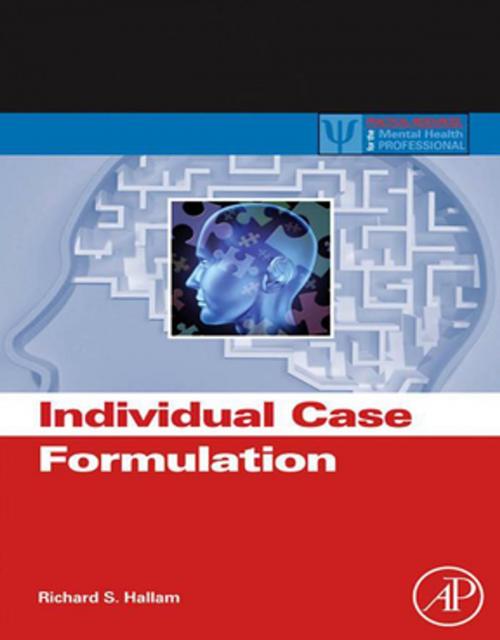Individual Case Formulation
Nonfiction, Health & Well Being, Psychology, Counselling, Clinical Psychology, Medical| Author: | Richard S. Hallam | ISBN: | 9780123982797 |
| Publisher: | Elsevier Science | Publication: | January 10, 2013 |
| Imprint: | Academic Press | Language: | English |
| Author: | Richard S. Hallam |
| ISBN: | 9780123982797 |
| Publisher: | Elsevier Science |
| Publication: | January 10, 2013 |
| Imprint: | Academic Press |
| Language: | English |
Individual Case Formulation presents formulation as a process that can be taught systematically to trainee therapists. The book begins by discussing assorted theories of case formulation, and critiques their ability to be applied in real world situations. The individual case formulation approach is then defined and discussed as a way to integrate the best of what different theoretical orientations have to offer in conjunction with the expertise and clinical judgment of the therapist. The book proposes a systemic/functional framework that focuses on difficulties as defined by the client and emphasizes constructive solutions to problems rather than symptom reduction. Moving from theory to application, the book then guides therapists in how to conduct assessment interviews, how to reach a provisional formulation, how to test that formulation for accuracy and reformulate if necessary, how a therapist can make explicit what their clinical reasoning was in making the case formulation, and provides case examples and transcripts so readers will better grasp the concepts in action.
Intended both for the starting or trainee therapist and the experienced clinician, Individual Case Formulation provides a practical guide for those looking to improve their case formulation skills.
- Reviews, critiques and compares multiple theories on formulation
- Identifies benefits of utilizing the individual case approach
- Guides trainee therapists how to conduct assessment interviews and reach a provisional formulation
- Presents a conceptual framework for developing and testing a formulation
- Helps trainees make explicit their clinical reasoning
- Field-tested for several decades
- Provides case examples with annotated transcripts to illustrate the process of formulation
Individual Case Formulation presents formulation as a process that can be taught systematically to trainee therapists. The book begins by discussing assorted theories of case formulation, and critiques their ability to be applied in real world situations. The individual case formulation approach is then defined and discussed as a way to integrate the best of what different theoretical orientations have to offer in conjunction with the expertise and clinical judgment of the therapist. The book proposes a systemic/functional framework that focuses on difficulties as defined by the client and emphasizes constructive solutions to problems rather than symptom reduction. Moving from theory to application, the book then guides therapists in how to conduct assessment interviews, how to reach a provisional formulation, how to test that formulation for accuracy and reformulate if necessary, how a therapist can make explicit what their clinical reasoning was in making the case formulation, and provides case examples and transcripts so readers will better grasp the concepts in action.
Intended both for the starting or trainee therapist and the experienced clinician, Individual Case Formulation provides a practical guide for those looking to improve their case formulation skills.
- Reviews, critiques and compares multiple theories on formulation
- Identifies benefits of utilizing the individual case approach
- Guides trainee therapists how to conduct assessment interviews and reach a provisional formulation
- Presents a conceptual framework for developing and testing a formulation
- Helps trainees make explicit their clinical reasoning
- Field-tested for several decades
- Provides case examples with annotated transcripts to illustrate the process of formulation















